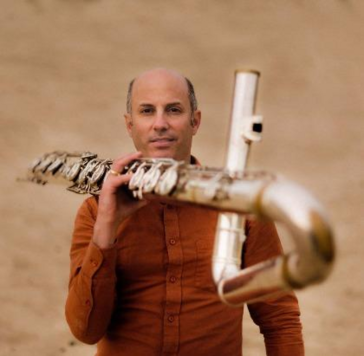Recently, there has been an increased interest in the well-being of students in higher education. Despite the widespread consensus on the importance of student well-being, a clear definition continues to be lacking. This study qualitatively examined the student perspective on the topic through semi-structured interviews at a university of applied sciences in the Netherlands (n = 27). A major recurring theme was well-being as a balance in the interplay between efforts directed towards studies and life beyond studies. This method of perceiving well- being deviates from theoretical definitions. Students mentioned various factors that influence their well-being. Responses ranged from personal and university related factors to external factors beyond their educational institution. This study contributes to the body of knowledge on the well-being of students in higher education and provides suggestions for educational institutions, such as incorporating a holistic perspective on students and learning; and focus points for the development of policies and practices.
MULTIFILE

This three-wave study examined associations between a motivational construct future time perspective (FTP) and teachers’ identity (TI) in a sample of Dutch student teachers (N = 368). Additionally, gender and educational level were included as factors affecting FTP and TI. Random intercept cross-lagged panel models indicated that FTP and TI were moderately and positively correlated at the between-person level. At the within-person level, positive cross-lagged effects from wave 2 FTP on wave 3 TI were uncovered. Male student teachers and those that are academically educated reported weaker FTP and TI relations compared to their counterparts. Implications for practice are discussed.

http://dx.doi.org/10.14261/postit/0AC5BB0E-3951-48E2-B00D49D5194985A7In 2015 and 2016, Saxion University of Applied Sciences organized the 2nd and 3rd edition of the Regional Innovation and Entrepreneurship Conference (RIEC).University Business Incubators (UBI) are being considered spatial clusters (Pont & van der Meer, 2012) in which entrepreneurship and innovation is stimulated based on academic knowledge. However, research has shown that most Business Incubators (BI’s) do not meet expectations. Therefore a new BI sub-type will be presented called the ‘Student Driven Business Incubator’ (SDBI), which is mainly managed and driven for and by students. This type of BI is based on a hybrid management approach between bottom up management by students and top down guidance by the parent organization.
MULTIFILE

Students in Higher Music Education (HME) are not facilitated to develop both their artistic and academic musical competences. Conservatoires (professional education, or ‘HBO’) traditionally foster the development of musical craftsmanship, while university musicology departments (academic education, or ‘WO’) promote broader perspectives on music’s place in society. All the while, music professionals are increasingly required to combine musical and scholarly knowledge. Indeed, musicianship is more than performance, and musicology more than reflection—a robust musical practice requires people who are versed in both domains. It’s time our education mirrors this blended profession. This proposal entails collaborative projects between a conservatory and a university in two cities where musical performance and musicology equally thrive: Amsterdam (Conservatory and University of Amsterdam) and Utrecht (HKU Utrechts Conservatorium and Utrecht University). Each project will pilot a joint program of study, combining existing modules with newly developed ones. The feasibility of joint degrees will be explored: a combined bachelor’s degree in Amsterdam; and a combined master’s degree in Utrecht. The full innovation process will be translated to a transferable infrastructural model. For 125 students it will fuse praxis-based musical knowledge and skills, practice-led research and academic training. Beyond this, the partners will also use the Comenius funds as a springboard for collaboration between the two cities to enrich their respective BA and MA programs. In the end, the programme will diversify the educational possibilities for students of music in the Netherlands, and thereby increase their professional opportunities in today’s job market.

Developing and realizing an innovative concept for the Active Aging campus in two years, where students, teachers, companies, residents of surrounding Campus neighborhoods will be invited to do exercise, sports, play, meet and participate. This includes, on the one hand, providing input with regard to a mobility-friendly design from an infrastructural perspective and, on the other hand, organizing activities that contribute to Healthy Aeging of the Zernike site and the city of Groningen. It is not only about having an Active Aging campus with an iconic image, but also about the process. In the process of realization, students, teachers, researchers, companies and residents from surrounding districts will be explicitly involved. This includes hardware (physical environment / infrastructure), software (social environment) and orgware (interaction between the two).
This PD project aims to gather new knowledge through artistic and participatory design research within neighbourhoods for possible ways of addressing and understanding the avoidance and numbness caused by feelings of vulnerability, discomfort and pain associated with eco-anxiety and chronic fear of environmental doom. The project will include artistic production and suitable forms of fieldwork. The objectives of the PD are to find answers to the practice problem of society which call for art that sensitises, makes aware and helps initiate behavioural change around the consequences of climate change. Rather than visualize future sea levels directly, it will seek to engage with climate change in a metaphorical and poetic way. Neither a doom nor an overly techno-optimistic scenario seem useful to understand the complexity of flood risk management or the dangers of flooding. By challenging both perspectives with artistic means, this research hopes to counter eco-anxiety and create a sense of open thought and susceptibility to new ideas, feelings and chains of thought. Animation and humour, are possible ingredients. The objective is to find and create multiple Dutch water stories, not just one. To achieve this, it is necessary to develop new methods for selecting and repurposing existing impactful stories and strong images. Citizens and students will be included to do so via fieldwork. In addition, archival materials will be used. Archives serve as a repository for memory recollection and reuse, selecting material from the audiovisual archive of the Institute of Sound & Vision will be a crucial part of the creative work which will include two films and accompanying music.